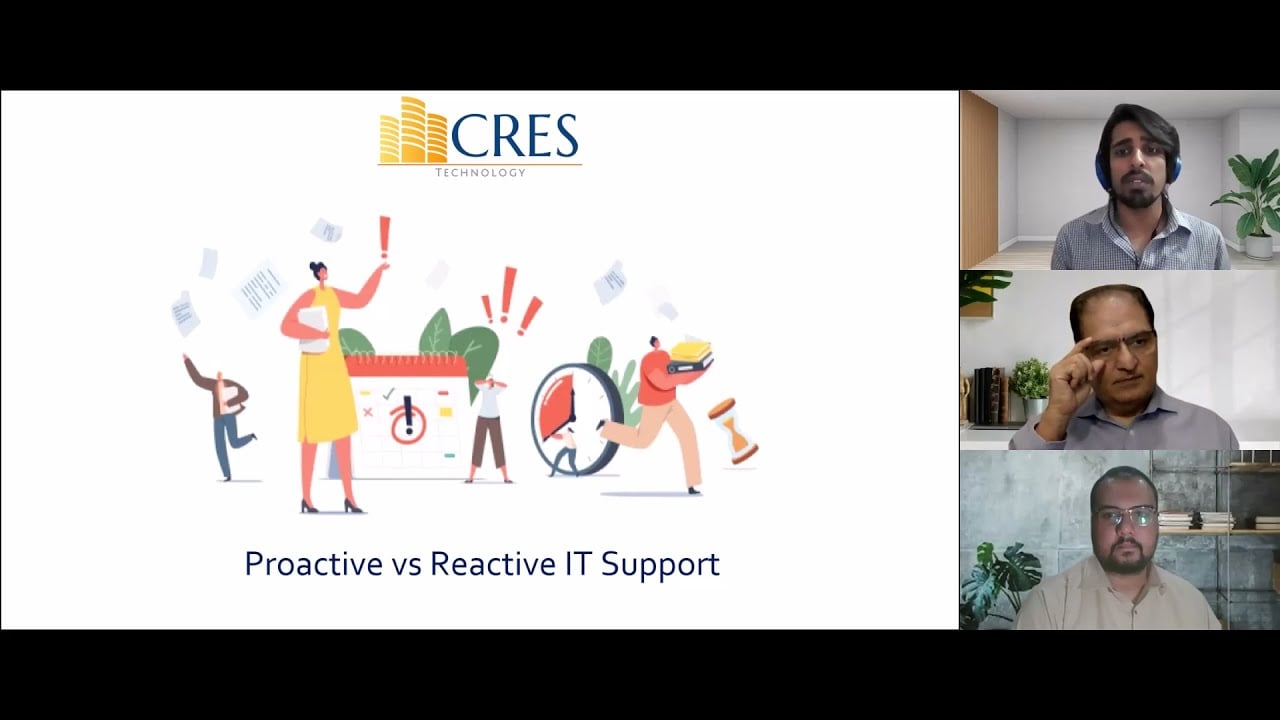Did you know that over 60 percent of Australian businesses now outsource some or all of their IT needs? The rapid growth in technology dependence leaves many Brisbane companies struggling to keep up with modern security threats, system maintenance, and operational demands. Understanding managed IT services gives your business a clear edge, revealing smarter ways to stay secure, perform better, and free up your team’s valuable time.
Table of Contents
- Managed IT Services Defined and Explained
- Types of Managed IT Services for Businesses
- How Proactive IT Support Works
- Key Benefits for Brisbane-Based SMEs
- Risks, Costs, and Common Pitfalls
- Alternatives to Managed IT Services
Key Takeaways
| Point | Details |
|---|---|
| Outsourcing IT Management | Managed IT services allow businesses to delegate their technology responsibilities to expert providers, enabling internal teams to focus on core functions. |
| Proactive Technology Support | Continuous monitoring and maintenance increase system reliability and mitigate potential issues before they escalate. |
| Financial and Operational Advantages | Businesses can reduce costs, access specialized expertise, and implement scalable technology solutions without the need for expensive internal teams. |
| Careful Provider Evaluation | Understanding the risks, costs, and service expectations is crucial for selecting the right managed IT service providers to align with business needs. |
Managed IT Services Defined and Explained
Managed IT services represent a strategic approach where businesses outsource their technology infrastructure and support needs to specialised external providers. According to research from Australian IT experts, these services involve comprehensive management of a company’s entire technological ecosystem, ensuring optimal performance, security, and efficiency.
At its core, managed IT services allow Brisbane businesses to transfer complex technology responsibilities to dedicated professionals. As research from Australian IT services indicates, this approach enables internal teams to concentrate on core business functions while benefiting from proactive IT management. Key components typically include:
- Continuous system monitoring
- Cybersecurity protection
- Network infrastructure management
- Technical support and troubleshooting
- Regular technology upgrades and maintenance
Businesses gain significant advantages through managed IT services. They can access enterprise-grade technology expertise without maintaining expensive in-house IT departments, reduce operational risks, and implement scalable technology solutions tailored to their specific needs. By partnering with experienced providers like IT Managed Services experts, organisations can transform technology from a potential burden into a strategic business enabler.

Types of Managed IT Services for Businesses
Managed IT services offer a comprehensive range of technological solutions designed to address the diverse needs of modern businesses. According to research from Australian IT specialists, these services encompass multiple critical areas that help organisations streamline their technological infrastructure and maintain operational efficiency.
The primary types of managed IT services include:
Here’s how the main types of managed IT services compare:
| Service Type | Primary Focus | Typical Benefits |
|---|---|---|
| Data Backup & Disaster Recovery | Information protection | Rapid recovery Data integrity |
| Cybersecurity Services | Threat prevention | Reduced breaches Peace of mind |
| Cloud Computing Services | Cloud management | Scalability Access anywhere |
| IT Help Desk Support | User assistance | Quick resolutions Efficiency |
| Managed Print Services | Print operations | Cost savings Workflow control |
- Data Backup and Disaster Recovery: Protecting critical business information and ensuring rapid system restoration
- Cybersecurity Services: Implementing robust protection against digital threats and potential breaches
- Cloud Computing Services: Managing and optimising cloud-based infrastructure and applications
- IT Help Desk Support: Providing ongoing technical assistance and troubleshooting
- Managed Print Services: Overseeing and optimising printing infrastructure and workflows
Moreover, cybersecurity support strategies are particularly crucial for Brisbane businesses. Different industries require tailored IT solutions. For instance, healthcare organisations might need specialised electronic health record management, while financial firms require secure document systems and compliance-focused technology support. By selecting the right managed IT services, businesses can transform their technological capabilities and focus on core operational objectives.
How Proactive IT Support Works
Proactive IT support represents a strategic approach to technology management that goes far beyond traditional reactive problem-solving. Rather than waiting for systems to fail, these services continuously monitor and anticipate potential technical issues before they escalate into significant disruptions.
The core mechanics of proactive IT support involve several critical components:
- Continuous Infrastructure Monitoring: Real-time tracking of network performance, hardware health, and system vulnerabilities
- Regular Performance Assessments: Conducting systematic evaluations to identify potential weaknesses
- Preventative Maintenance: Scheduling routine updates, patches, and hardware checkups
- Predictive Problem Resolution: Using advanced analytics to forecast and mitigate potential technical challenges
By implementing comprehensive IT consulting strategies, businesses can transform their technology management from a reactive cost centre into a proactive strategic asset. According to Australian IT research, this approach not only minimises downtime but also optimises network speed, reliability, and overall technological efficiency. The goal is simple: prevent problems before they occur, ensuring your business technology remains robust, secure, and continuously aligned with your operational objectives.
Key Benefits for Brisbane-Based SMEs
Managed IT services provide transformative advantages for small and medium enterprises in Brisbane, offering strategic solutions that go beyond traditional technology support. By leveraging external expertise, local businesses can unlock significant operational and financial benefits that would be challenging to achieve with in-house resources.
The key benefits for Brisbane SMEs include:
- Cost Efficiency: Reducing expensive internal IT infrastructure and personnel costs
- Expert Access: Gaining immediate access to specialised technological knowledge
- Risk Mitigation: Implementing advanced cybersecurity and compliance strategies
- Scalable Solutions: Adapting technology infrastructure quickly to business growth
- Continuous Innovation: Staying current with emerging technological trends
Moreover, cybersecurity strategies for SMEs are increasingly sophisticated. Modern managed service providers are now incorporating artificial intelligence and machine learning to automate routine tasks, detect potential threats faster, and provide intelligent monitoring. This technological evolution means Brisbane businesses can benefit from smarter, more responsive IT support that actively protects and enhances their operational capabilities. The result? A technology partnership that acts more like a strategic business accelerator than a traditional service provider.
Risks, Costs, and Common Pitfalls
Managed IT services present complex considerations for Brisbane businesses, requiring careful evaluation beyond their apparent advantages. While these services offer significant potential, understanding potential risks and challenges is crucial for making informed technological investment decisions.
The most common pitfalls businesses encounter include:
- Misaligned Service Expectations: Unclear communication about service scope and deliverables
- Hidden Cost Structures: Unexpected expenses beyond initial contract terms
- Security Vulnerabilities: Potential risks associated with external technology management
- Contract Inflexibility: Long-term agreements that don’t accommodate business evolution
- Performance Inconsistency: Varying service quality across different providers
Cybersecurity layers for SMEs become particularly critical when navigating these challenges. Australian research suggests businesses must prioritise providers who offer transparent pricing, flexible engagement models, and comprehensive security protocols. The key is conducting thorough due diligence, requesting detailed service level agreements, and maintaining open communication channels to mitigate potential risks and ensure your managed IT partnership genuinely supports your business objectives.
Alternatives to Managed IT Services
IT support strategies for Brisbane businesses extend beyond managed services, presenting multiple approaches with distinct advantages and challenges. Understanding these alternatives helps organisations make informed decisions about their technology management approach.
Businesses typically consider three primary alternatives to managed IT services:
- In-House IT Department: Maintaining a dedicated internal technology team
- Break-Fix Model: Addressing technical issues reactively as they emerge
- Hybrid Approach: Combining internal resources with selective external support
Each alternative carries unique implications. An in-house IT department provides direct control but demands significant financial investment in personnel, training, and infrastructure. The break-fix model appears cost-effective initially but often leads to higher long-term expenses due to unexpected downtime and emergency interventions. Microsoft 365 business solutions can provide some technological flexibility, but they cannot fully replace comprehensive IT management. Ultimately, while alternatives exist, managed IT services remain the most strategic option for most Brisbane SMEs seeking efficient, proactive technology support that balances expertise, cost-effectiveness, and technological agility.
Transform Your Brisbane Business with Expert Managed IT Services
Managed IT services play a vital role in solving the common challenges Brisbane SMEs face such as unpredictable technology issues, cybersecurity risks, and costly downtime. This article highlights the importance of proactive IT support, seamless cloud management, and robust cybersecurity — all key to protecting your business and driving growth.
At IT Start, we understand that small and medium businesses need a trusted partner who delivers tailored, transparent, and high-quality IT solutions close to home. We offer proactive managed IT services that focus on continuous system monitoring, risk mitigation, and smart technology upgrades. Our certified team aligns technology with your unique business goals so you can reduce costs, improve efficiency, and stay secure in a rapidly evolving digital landscape.
Ready to see how managed IT can become your strategic advantage? Take the first step towards hassle-free IT by contacting us for a free assessment at IT Start Contact. Discover how Brisbane businesses like yours stay protected and productive with our expert managed IT support and cybersecurity services. Don’t wait for IT problems to disrupt your business act now to secure ongoing peace of mind and operational strength.
Frequently Asked Questions
What are managed IT services?
Managed IT services involve outsourcing a company’s technology infrastructure and support needs to external providers who manage and optimize the entire technological ecosystem.
What are the benefits of using managed IT services for small and medium enterprises?
Managed IT services provide cost efficiency, access to expert knowledge, risk mitigation, scalable solutions, and continuous innovation, allowing SMEs to focus on core business functions.
How does proactive IT support differ from traditional IT support?
Proactive IT support focuses on continuously monitoring systems and anticipating potential issues, while traditional IT support is often reactive, addressing problems only after they occur.
What common pitfalls should businesses be aware of when using managed IT services?
Common pitfalls include misaligned service expectations, hidden costs, security vulnerabilities, contract inflexibility, and varying quality of service among providers.




